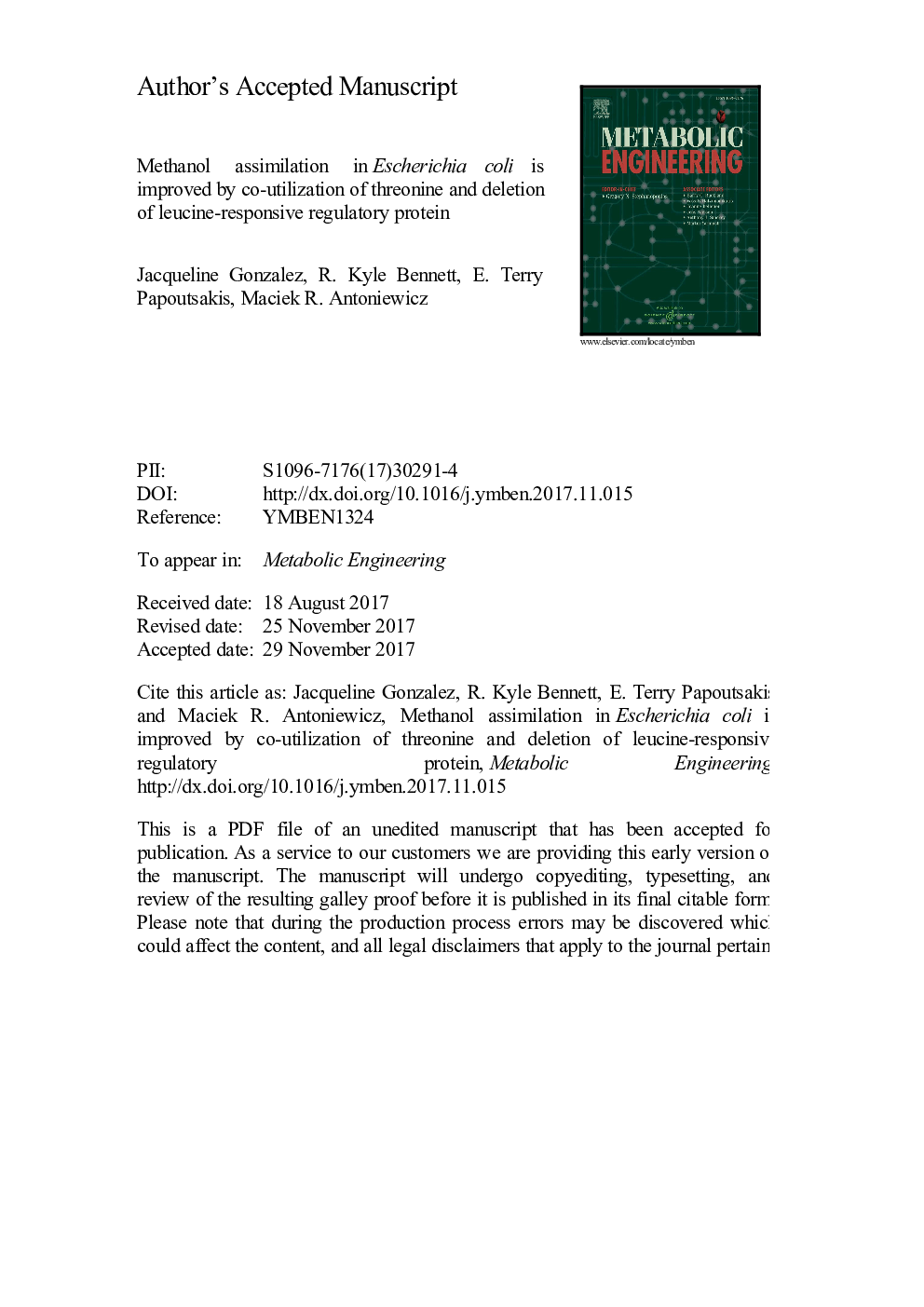| Article ID | Journal | Published Year | Pages | File Type |
|---|---|---|---|---|
| 6494127 | Metabolic Engineering | 2018 | 29 Pages |
Abstract
Methane, the main component of natural gas, can be used to produce methanol which can be further converted to other valuable products. There is increasing interest in using biological systems for the production of fuels and chemicals from methanol, termed methylotrophy. In this work, we have examined methanol assimilation metabolism in a synthetic methylotrophic E. coli strain. Specifically, we applied 13C-tracers and evaluated 25 different co-substrates for methanol assimilation, including amino acids, sugars and organic acids. In particular, co-utilization of threonine significantly enhanced methylotrophy. Through our investigations, we proposed specific metabolic pathways that, when activated, correlated with increased methanol assimilation. These pathways are normally repressed by the leucine-responsive regulatory protein (lrp), a global regulator of metabolism associated with the feast-or-famine response in E. coli. By deleting lrp, we were able to further enhance the methylotrophic ability of our synthetic strain, as demonstrated through increased incorporation of 13C carbon from 13C-methanol into biomass.
Related Topics
Physical Sciences and Engineering
Chemical Engineering
Bioengineering
Authors
Jacqueline E. Gonzalez, R. Kyle Bennett, E. Terry Papoutsakis, Maciek R. Antoniewicz,
